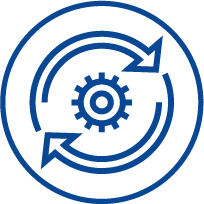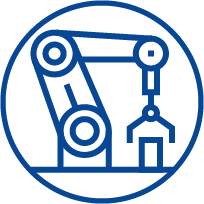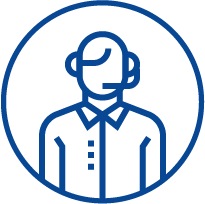FactoRIS II continues in development of an education framework based on
- Hands-on courses
- Dedicated education and training modules, targeting both students and industrial workforce
- Digital learning nuggets
The courses will address the prepared demonstrators in partners’ learning factories and integrate available content on the EIT Manufacturing Guided Learning Platform (GLP) – Skills.move.
Within the courses, demo production infrastructure will be provided in particular countries.
The developed best practices will translate into digital learning nuggets that will be made available to stakeholders and thus enable access to educational content to a wide range of industrial companies and their employees.
This is especially relevant to SMEs which rely on external training and education. The developed education framework will be implemented and tested in EIT RIS countries, where SMEs lag in the digital transformation the most.
Through the FactoRIS digital learning nuggets, students and workers get a fast access to the latest manufacturing knowledge without having to enrol in a long-term program.
Learning Factory Projects
The set of learning factory demonstrators has been proposed based on results of the survey of digital readiness of RIS based manufacturing SMEs and on the available infrastructure in the didactic laboratories of the activity partners.
Overall, the following criteria were considered:
- Digitalisation goals and challenges addressed by SMEs,
- Enabling technologies to be used,
- Availability of infrastructure for setting up the demonstrator,
- Potential of retrofitting the existing machinery,
- Remote connectivity,
- Availability of learning factory project/s in particular RIS countries.
Identified objectives of training activities (fundamentals of machine retrofitting with sensors to monitor performances, cloud-based data elaboration through artificial intelligence, usage of collaborative robots in manufacturing phases and quality control, as well as leveraging of virtual and augmented reality for an active assistance of operators) translated into three main lines for learning factories projects supported by technology demonstrators:

- Monitoring and control of existing production systems

- Lightweight robots in manufacturing and quality control

- Virtual reality and augmented reality for training operators
